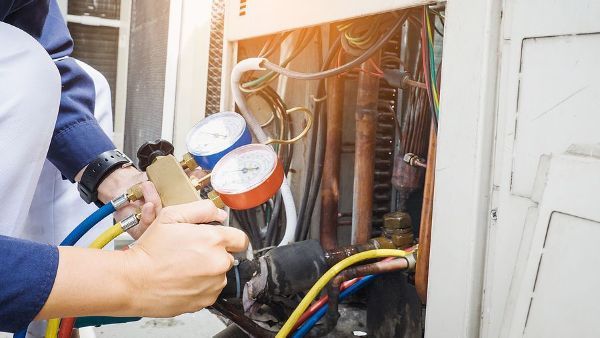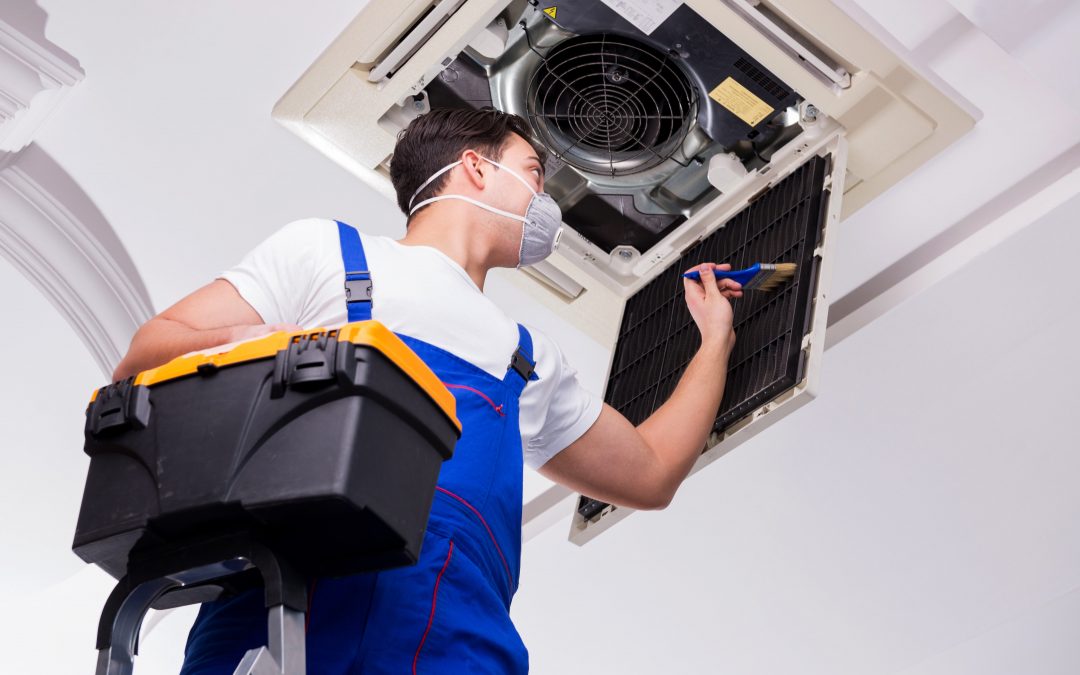Recognizing A/c: Usual Issues of Air Conditioner Systems and Their Solutions
HVAC systems play a crucial role in maintaining indoor comfort. Air conditioning units frequently encounter common problems that can hinder their performance. Concerns like inadequate air conditioning, unusual noises, and constant cycling can suggest much deeper mechanical problems. Furthermore, water leaks and undesirable odors can jeopardize air quality. Understanding these challenges and their services is essential for reliable maintenance. What steps can house owners require to guarantee their a/c systems operate efficiently?
Inadequate Cooling Efficiency
What triggers inadequate air conditioning performance in an a/c system? Numerous elements can add to this problem. An usual cause is an unclean air filter, which limits air movement and lowers cooling down effectiveness. In addition, reduced cooling agent degrees due to leakages can impede the system's capacity to absorb warmth successfully. An additional prospective trouble may develop from a malfunctioning thermostat, leading to inaccurate temperature level readings and improper cooling cycles. Obstructed or unclean condenser coils can also protect against warmth dissipation, further affecting efficiency. Ductwork concerns, such as leakages or obstructions, can result in uneven cooling throughout a room. Determining these problems promptly is vital for maintaining suitable cooling and heating function and ensuring a comfortable interior atmosphere. Regular maintenance and examinations can help reduce these problems and boost the system's total effectiveness.
Unusual Noises Coming From the AC Device
A range of unusual sounds originating from an AC device can indicate underlying problems that require attention. Common sounds include rattling, which might suggest loose elements or debris within the unit. Hissing noises often indicate refrigerant leaks, endangering the system's effectiveness. A grinding audio can show worn-out bearings or electric motor concerns, while a piercing screech might signal a trouble with the compressor or a sliding belt.
Each of these sounds serves as an indication that something may be awry, possibly causing even more significant damages otherwise dealt with quickly. Home owners ought to avoid overlooking these auditory signs and think about getting in touch with a certified HVAC specialist for diagnosis and fixing. Timely treatment can not only recover functionality yet additionally prolong the life-span of the system. HVAC contractor. Acknowledging these noises as signs of difficulty is important for maintaining peak a/c efficiency
Frequent Cycling On and Off
Frequent biking on and off can suggest ineffectiveness or breakdowns within a HVAC system, frequently referred to as short-cycling. This condition can bring about boosted energy usage and may trigger unneeded wear on the unit's parts. Numerous aspects can contribute to this trouble, consisting of an incorrectly sized air conditioning device, a malfunctioning thermostat, or dirty air filters. When an air conditioner system is also large for the space, it cools as well swiftly, creating it to cycle frequently without properly evaporating the air. If the thermostat is defective, it might erroneously signify the system to turn on and off. Furthermore, obstructed or dirty air filters can limit airflow, triggering the system to function more challenging and cycle regularly. Attending to these problems without delay is vital to enhance effectiveness, extend the lifespan of the heating and cooling system, and preserve suitable interior comfort.
Water Leakages and Water Drainage Issues
Water leakages and drainage problems can present substantial obstacles for cooling and heating systems, leading to prospective damages and inadequacies. These problems usually come from clogged condensate drains pipes, which protect against water from draining pipes correctly and can cause overflow. In addition, harmed drain frying pans or inappropriate installment might worsen these leakages, creating water to build up in undesirable areas.
Routine maintenance is necessary to stop such issues; ensuring that condensate lines are clear and drain pans are intact can mitigate the risk of leaks. Property owners must consistently look for signs of wetness around the unit, as early detection can protect against extra substantial damage. In cases where leaks are identified, immediate action is needed, which might include removing obstructions or replacing defective components. Dealing with water leakages and water drainage problems not only safeguards the a/c system yet likewise preserves interior air high quality and convenience.
Bad Smells and Air High Quality Concerns
Bad smells emanating from heating and cooling systems can show significant air quality worries. Typical resources of these unpleasant smells consist of mold and mildew, mildew, or microorganisms development in the ductwork, frequently as a result of moisture build-up. If the system has an unpleasant, moldy smell, it might signify that the air filters are blocked or that there wants air flow, permitting pollutants to distribute. Furthermore, their explanation a burning odor might recommend electric problems or overheating parts, requiring instant focus.
Property owners should on a regular basis change air filters and timetable routine upkeep to assure peak air high quality. Utilizing an air purifier can likewise help get rid of smells and enhance interior air quality. If smells continue despite these steps, expert evaluation and cleaning might be required to determine and deal with underlying concerns. AC repairman. Recognition of these smells is crucial, as they can impact wellness and comfort in interior settings

Regularly Asked Inquiries
Just how Usually Should I Arrange AC Maintenance?
It is suggested to schedule AC upkeep a minimum of annually, ideally before the air conditioning season begins. Regular assessments can aid identify concerns early, making certain efficient operation and go to the website prolonging the life-span of the unit.

What Is the Average Life Expectancy of an Air Conditioner Device?
The average life-span of an air conditioning device typically varies from 15 to twenty years. Elements such as maintenance, use patterns, and ecological problems can considerably affect this duration, influencing overall effectiveness and efficiency in time.
How Do I Pick the Right Dimension Air Conditioning System for My Home?

What Are the Indications My AC System Needs Replacement?

Can I Install an AC Unit Myself?
While installing an AC device oneself is feasible, it calls for technical knowledge and correct devices. ac unit replacement. Many people might face difficulties with installation, potentially leading to ineffectiveness or security dangers, making professional assistance advisable for suitable results
Conclusion
In summary, recognizing common cooling and webpage heating issues and their remedies is crucial for keeping reliable AC system efficiency. Addressing concerns such as insufficient cooling, uncommon sounds, constant biking, water leaks, and unpleasant odors can greatly enhance indoor convenience and air quality. Regular maintenance, consisting of filter modifications and timely repair work, plays a significant function in protecting against these troubles. By staying aggressive, home owners can ensure their heating and cooling systems operate properly, ultimately extending the lifespan of their a/c units.